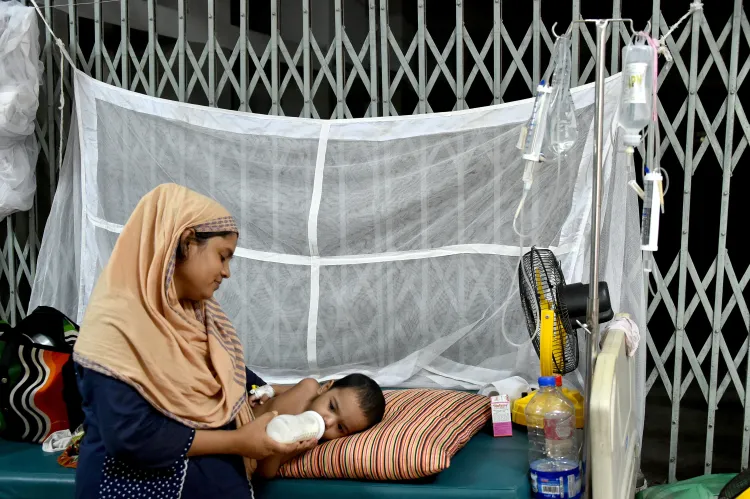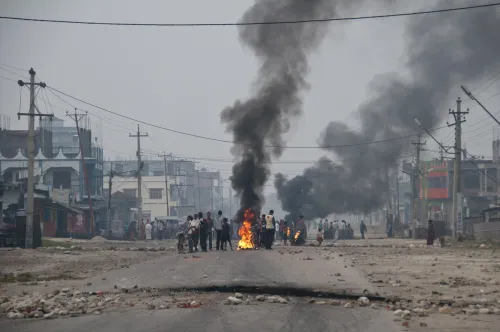Bangladesh: Are dengue fatalities rising? Death toll in 2025 hits 73

Synopsis
Key Takeaways
- Three additional deaths from dengue reported in Bangladesh.
- Total death toll for 2025 now stands at 73.
- Recent surge with 331 new cases hospitalized.
- Health officials warn of changing nature of dengue, complicating treatment.
- WHO supports dengue management with essential supplies.
Dhaka, July 26 (NationPress) In the last 24 hours, three individuals have succumbed to dengue in Bangladesh, bringing the total number of deaths associated with the mosquito-borne illness in 2025 to 73, as reported by the Directorate General of Health Services (DGHS) on Saturday.
The recent casualties were noted in regions under the Chattogram Division (excluding City Corporation) and Dhaka South City Corporation (DSCC). During the same period, 331 new dengue cases were admitted to hospitals across Bangladesh, increasing the cumulative number of infections in 2025 to 19,120, according to the United News of Bangladesh (UNB).
Specifically, 132 cases have been documented in Barishal Division (outside City Corporation), 73 in Dhaka Division (outside City Corporation), 47 in Dhaka South City Corporation, 30 in Chattogram Division (outside City Corporation), 28 in Dhaka North City Corporation, 18 in Khulna Division (outside City Corporation), and 3 in Mymensingh (outside City Corporation).
In 2025, a total of 575 dengue-related fatalities have been recorded in Bangladesh. The overall count of dengue cases has reached 101,214, while 100,040 patients have successfully recovered, as per DGHS statistics.
Earlier on July 9, the Director General of DGHS, Abu Jafor, indicated that the characteristics of dengue have evolved, complicating patient treatment. During a meeting at the DGHS conference room in Mohakhali, he stated, "The current strain of dengue is no longer manageable as it once was. Many patients are rapidly becoming critically ill."
Jafor emphasized, "A higher number of patients are arriving with severe symptoms that necessitate close surveillance and intensive care. In such situations, portable ultrasound and bedside hematocrit machines are vital for prompt diagnosis and informed treatment decisions." He highlighted that these instruments enable quicker clinical procedures, reducing complications through faster diagnoses. He urged the populace to remain alert and seek medical attention without delay in case of fever.
During the event, the World Health Organisation (WHO) office in Bangladesh provided essential medical equipment to bolster dengue management efforts. WHO Bangladesh delivered 1,600 units of medical supplies related to dengue management, alongside 21 bedside hematocrit machines and 8 portable ultrasound machines to the DGHS. WHO representatives reiterated their dedication to assisting Bangladesh in its battle against dengue.










